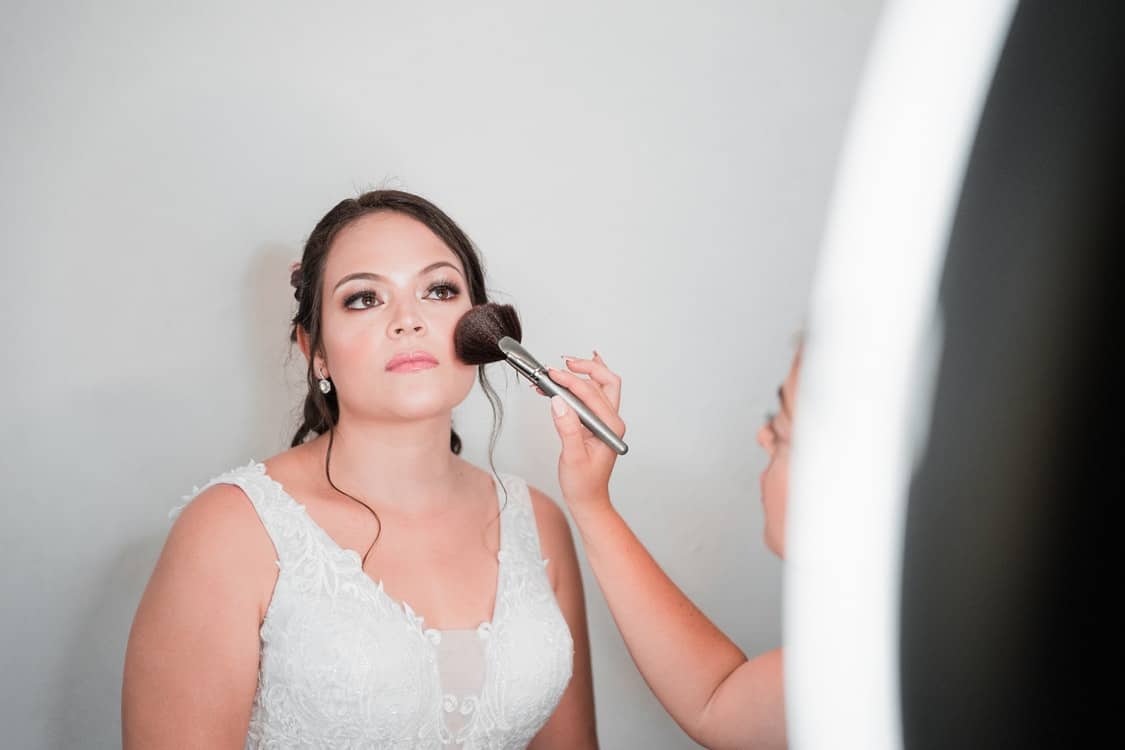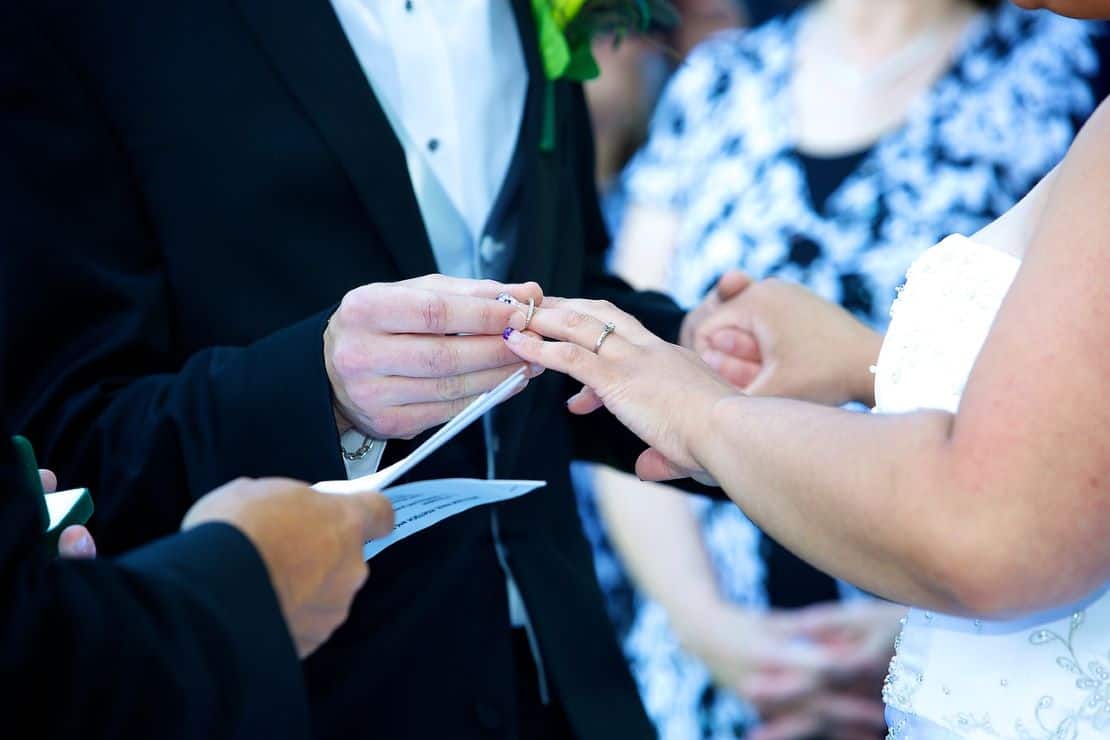The question “What Time Do Weddings Start?” isn’t merely a detail but the foundation for planning a wedding. Perfect timing shapes the perfect wedding. Whether it’s the start of the ceremony or the end of the reception, the schedule must be planned meticulously.
So, what time does a wedding usually start? Experts recommend beginning the ceremony between 10 AM and 3 PM to ensure a smooth affair.
However, this is dependent on various factors, from the season to the venue, that the bride and groom must consider. This timeframe is considered optimal as it offers flexibility in planning other activities and aligns well with most venue regulations.
Wedding Timeline: Things to Consider
A useful technique to determine the start time is to decide when the event should end. By crafting a comprehensive timeline, every major and minor detail can be addressed. This approach answers the question of when the wedding should start by looking at the entire picture.
Mapping the end time first ensures that key elements of the celebration are not rushed and that all special moments have their place.
Wedding Timeline: Key Factors for What Time a Wedding Should Start
- Hair and Makeup: Generally, the bride’s makeup takes two to three hours, which can affect what time a wedding starts. Also, considering travel time to the venue and potential delays is essential.
- The Wedding Pace: Whether formal or relaxed, pacing affects when the wedding starts and ends. Allowing time for guests to mingle, for speeches, and for transitions between activities can greatly influence the start time.
- Lighting: Starting too late may affect photography. Some couples prefer sunset or nighttime weddings, each with its unique timing needs. Consideration of venue lighting and the photographer’s requirements ensures that memories are captured beautifully.
- Season: Planning an outdoor wedding? The season will play a role in deciding what time the wedding should start. For example, a summer wedding might best start later in the day to avoid the afternoon heat, while a winter wedding might need to start earlier to take advantage of limited daylight.
- Venue Rental: Regulations and curfews may limit options for what time a wedding can start or end. Understanding these constraints early in the planning process is crucial to avoid unexpected challenges.
- Demographics of the Wedding Attendees: Guest preferences and age influence the decision on what time the wedding should start. Consideration of guests traveling from different time zones or with special needs can further refine the timing decision.
- Alternative Hours: Unique timing, such as a sunrise wedding, can be considered based on the couple’s preferences. Such choices may require additional logistics, such as lighting or transportation arrangements.

Sample Wedding Timelines: When Do Weddings Usually Start and End?
Now that the basic considerations have been laid out, below are sample wedding timelines to showcase which time a ceremony can best start.
Here are two detailed examples of wedding timelines:
Morning Wedding
- 7 am – Hair and makeup ensues on bridesmaids
- 8 am – Hair and makeup begins on the Bride
- 9 am – Bride gets dressed. Photographer arrives
- 10 am – Photo-taking for the bridal party and groom’s party
- 10:30 am – Groom and groomsmen arrive at the venue
- 10:45 am – Bride and bridal party departs for the venue
- 11 am – Ceremony starts
- 11:30 am – Ceremony ends
- 11:45 am – Reception begins subtly. Couple takes photos
- 12:15 pm – Couple returns. Group takes photos
- 1 pm – Lunch is served
- 3 pm – Speeches and coffee
- 6 pm – Evening guests arrive
- 6:30 pm – Cake cutting and first dance
- 7 pm – Dance floor opens
- 7:30 pm – Dinner (evening buffet) is served
Afternoon Wedding
- 10am – Hair and makeup begin on bridesmaids
- 11 am – Hair and makeup begin on the Bride
- 12 pm – Bride gets dressed
- 12:45 pm – Photo-taking with the bridal and groom party
- 1:30 pm – Groom and groomsmen arrive for the ceremony
- 1:45 pm – Bride and bridal party depart and arrive at the venue
- 2 pm – Ceremony starts
- 2:45 pm – Ceremony ends. Couple takes photos
- 3:15 pm – Reception drinks begin. Canapes served
- 3:30 pm – Couple returns from taking photos. Photo-taking with guests
- 5 pm – Dinner is served
- 6:15 pm – Speeches
- 6:45 pm – Dessert
- 7:15 pm – Cutting cake. Bride and groom leave for ‘golden hour’ photos
- 8 pm – Evening guests arrive
- 8:30 pm – First dance
- 8:45 pm – DJ/band starts
- 11:45 pm – Bride and groom depart
- 12 pm – Party finishes, or may continue in another bar
Final Considerations Before Exchanging “I Do”s

- Do Not Start Too Late: Consider starting early for quality photos. Additionally, starting too late can lead to a compressed schedule that might cause stress.
- Consider A Longer Reception: At least 4 to 5 hours for the reception is advisable. This allows for plenty of dancing, socializing, and enjoyment of the special day.
- Pace The Ceremony Well: Include leeway time to avoid rushing. Unexpected delays can occur, and planning for them ensures a smoother day.
- Use These As Guides: These timelines are templates to guide the question, “What time should our wedding start?” Customizing these guides to fit the couple’s unique needs and desires will create a more meaningful experience.
Final Thoughts
What time a wedding usually starts is shaped by season, venue, guest preferences, and more. With proper planning, flexibility, and adherence to these guidelines, a memorable and perfectly timed wedding can be achieved. These factors, along with a commitment to thoughtful planning, create a day that reflects the couple’s personality and ensures a joyous celebration.